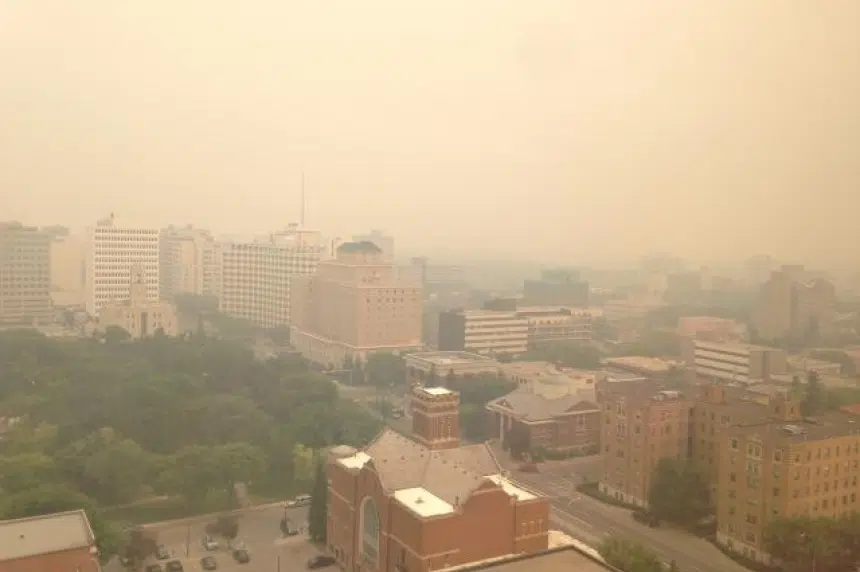People who suffer from allergies, asthma or both are paying the price for a long, dry and sometimes smoky summer.
This week, Environment Canada issued special air-quality statements covering parts of southwest and central Saskatchewan due to smoke drifting north from forest fires in the U.S. The smoke can irritate your eyes and throat, and possibly cause shortness of breath.
“It affects people with asthma a little bit more and they can certainly have a worsening of their condition which means they may have more shortness of breath, cough, wheeze and coughing up more mucus because their lungs are reacting to the smoke in the air,” explained Marion Laroque, a respiratory therapist with the Saskatchewan Lung Association.
Laroque says people with asthma should check to make sure their medications are up to date, and make a plan with their doctors in case their symptoms get worse.
“When it’s smoky or things are bothering you, the first line of defense for both asthma and an allergy is to avoid that allergen,” she said. “So unfortunately, on a lovely summer day like (Friday), we’re telling people with asthma to stay inside.”
Laroque says she took more calls from people with asthma in late June and July when the smoke from forest fires in Saskatchewan got really bad. This time, people are prepared for the hazy weather.
For people who aren’t diagnosed with asthma, this weather may be the tipping point to visit their doctors if they are experiencing symptoms like a tight chest or shortness of breath.
She says this allergy season isn’t necessarily worse for everyone because allergies are often very specific, and some people actually have more trouble in wet weather than dry weather.
“Pollen season is longer because our weather is changing, certainly our climate is changing,” Laroque commented. “When you get an unusual season like this, for those people that are bothered by dry air, it’s going to be worse this year.”
Sometimes it is difficult to tell the difference between a summer cold and allergies; if it lasts longer than a few days, you might have allergies.
“Irritated eyes, runny nose, headaches – those kind of things are more allergies than a cold,” she said. “It’s certainly something you need to talk to your doctor about.”
If you experience the same symptoms at the same time of year, that might be a red flag to suggest you have allergies, and not a common cold.
When you are dealing with asthma or allergies, Laroque says the most important line of defence is to pay attention to your body. If you aren’t feeling well, just stay inside or get some medicine.











